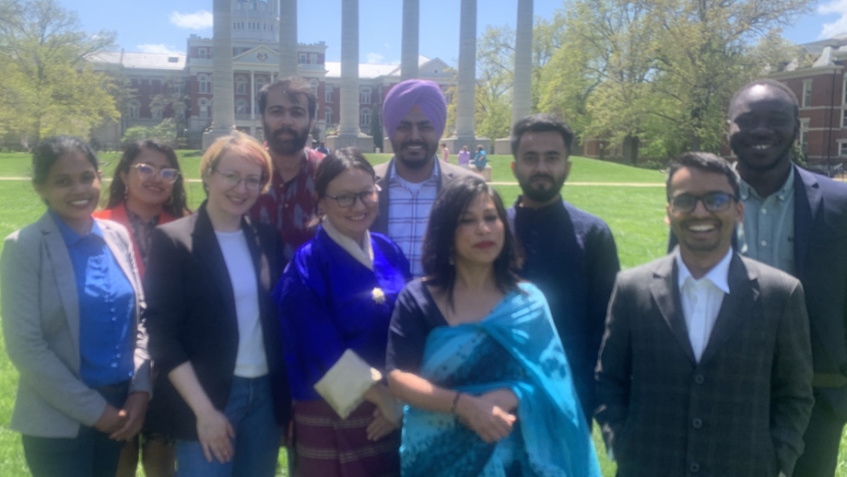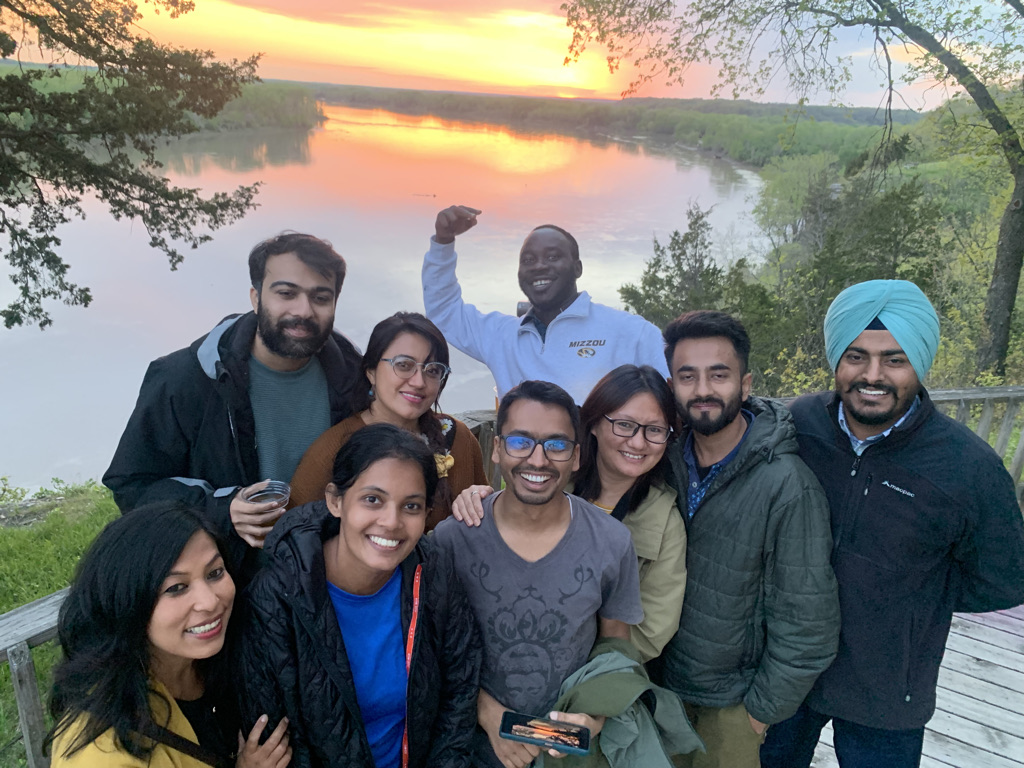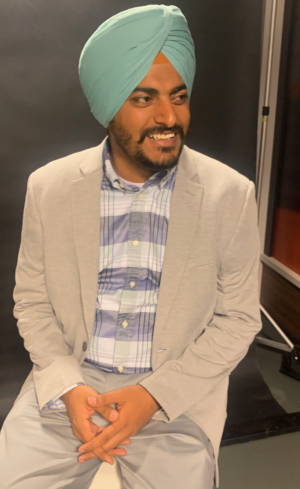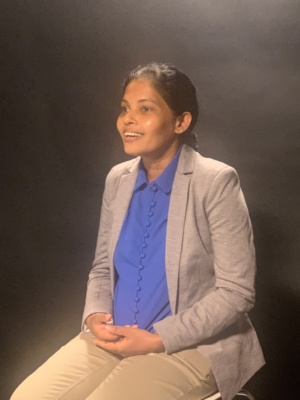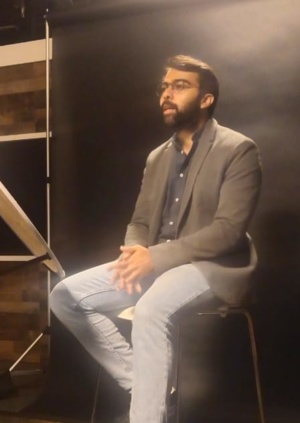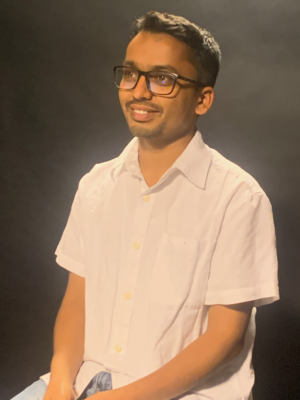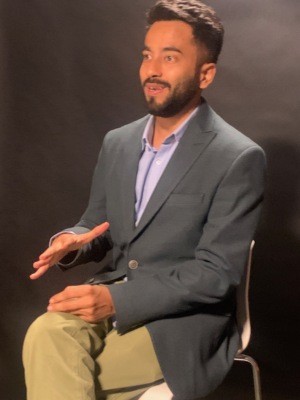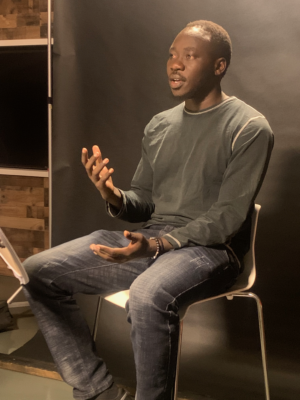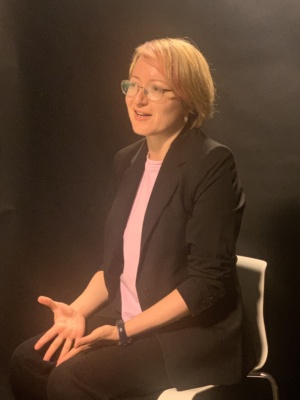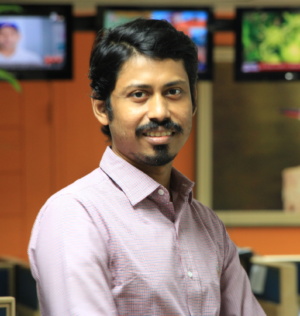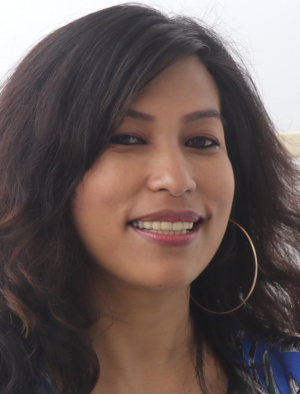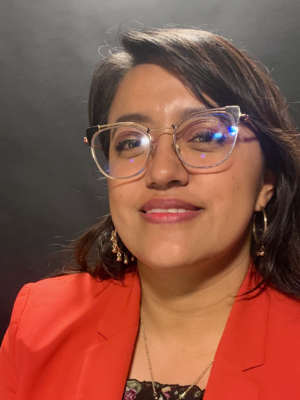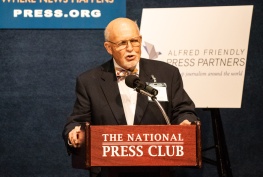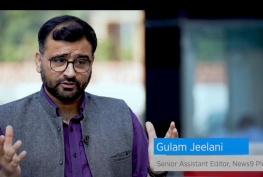Twelve investigative reporters from Central America, South America, South Asia, Eurasia and North Africa started work at U.S. media outlets in May after completing 10 days of intensive basic and advanced training at the Missouri School of Journalism.
Their experience in the 38-year-old fellowship program will improve their ability to produce in-depth reporting on critical issues facing their countries. The fellows are committed to collaborating on cross-border projects and sharing what they learn with colleagues when they return home in August.
Over the past two years of the pandemic, computer labs, classrooms and newsrooms closed. Alfred Friendly Press Partners had to cut short its fellowship program in the spring of 2020 and postpone the 2021 program.
The training is conducted in-person by professional practice faculty in the world’s premier journalism school. This year, there were numerous hands-on sessions on multimedia reporting and data journalism — ranging from the fundamentals of photography to video editing, from using spreadsheets to data visualization.
There also were sessions on best practices in U.S. newsrooms, fact checking, using the Freedom of Information Act, communications law, web tools and applications, and open source intelligence.
A final seminar at the end of the fellowship will allow them to compare and evaluate their experiences and discuss their impressions of the American media, and to learn and practice presentations to make in their home countries.
The host newsrooms include veteran participants — the Los Angeles Times, Pittsburgh Post-Gazette, and the Miami Herald. Other hosts are new digital outlets, including Investigate West, Wisconsin Watch and The Marshall Project. Also hosting are two members of the Kansas City Media Collective, KCUR and KCPT.
Primary sponsors for the 2022 Fellows include the Pat and Janna Stueve Foundation and TRACE International, a non-profit organization that supports projects that encourage greater commercial transparency and advance anti-bribery education.
Alfred Friendly Press Partners last year joined with the Organized Crime and Corruption Reporting Project to undertake a two-year training regimen for eight journalists that will strengthen investigative reporting in South Asia. Before joining the Alfred Friendly fellowship in April, the OCCRP journalists went through vigorous reporting and security training.
The goal of the project funded by the U.S. State Department in South Asia is to ensure journalists in the region have the capacity to expose corruption, inform citizens, and empower the public to push for greater government accountability and transparency.
Alfred Friendly is a nonprofit organization formed in 1984 and a sponsor of J1 visas issued by the State Department that allow Fellows to work on the staffs of U.S. newsrooms for three to six months. More than 340 journalists from 80+ countries have graduated from the program and gone on to uplift journalism around the world.
Fellows in the Class of 2022:
- David Mono Danga, a correspondent for Voice of America and co-founder of an online investigative media platform in South Sudan, which lacks an independent media despite a transitional constitution that guarantees freedom of the press. During the fellowship, Danga will learn how to effectively expose corruption and promote good governance in his country. He is working at Voice of America in Washington.
- Jody García, a contributor to the New York Times and other international outlets and reporter for Plaza Pública, an investigative newspaper in Guatemala, where the government and media are hobbled by crime and corruption. She is working at the Miami Herald along with Daniela Castro, a Fellow from Bogotá, Colombia whose internship was postponed in 2020.
- Anastasia Valeeva of Russia, a data journalist and project coordinator who’s led investigative reports in Kyrgyzstan on subjects such as migration, gender equality, and domestic violence, along with stories on election-tampering and issues related to corruption. She is working for The Marshall Project and her work was recently featured by the Poynter Institute.
The eight reporters in the OCCRP network from South Asia, where media freedoms and democratic governments are eroding, are:
- Parth Nikhi, an independent reporter based in Mumbai who writes about social issues in rural India. Nikhil received a grant from the Pulitzer Center to write a series of stories on societal fallout of COVID-19 and the inadequate health infrastructure. He was one of three finalists for the prestigious Martin Adler Prize at the Rory Peck Awards for international freelancers given in November 2021 in London.
- Somesh Jha of India, who works with Nikhil at the Los Angeles Times, is a member of The Reporters Collective. The new group of investigative reporters collaborate to produce in-depth multimedia projects in multiple languages that “put the spotlight on those in power.” His four-part investigative series last year for BloombergQuint examined hundreds of documents obtained through the transparency law.
- Indunil Usgoda Arachchi of Sri Lanka, a reporter and freelancer who’s contributed to international news outlets. Arachchi’s Sinhala-language newspaper is an alternative publication started by an investigative journalist and is training young journalists. She aspires to develop an investigative reporting news outlet focused on crime and corruption in Sri Lanka “to push the government for accountability and transparency.” She is working on the staff of Investigate West, a nonprofit based in Seattle.
- Saurav Rahman is a senior reporter for Maasranga Television in Bangladesh who also wants to build an independent investigative reporting news outlet. A story he reported for OCCRP as a freelancer revealed the fraudulent activities of shadow banks, and his stories on garment factories exposed dangerous working conditions. Rahman is working for KCPT, part of the Public Broadcasting Service.
- Chencho Dema, a reporter for Bhutan Today and Business Bhutan and a freelancer for the BBC, The Wire, The Diplomat and other outlets. In 2019 she won the national Women in Politics story of the year award. She said the fellowship will help her produce stories with a greater impact on the community, society and Bhutanese democracy. Dema is working for KCUR, a National Public Radio affiliate.
- Tanka Dhakal of Nepal, a multimedia reporter for DeshSanchar.com, a digital news outlet in Nepal with an English language version. He’s done in-depth reports on child sexual abuse and children deprived of an elementary school education. Dhakal is working for Wisconsin Watch, an innovative digital startup founded by the Wisconsin Center for Investigative Reporting.
- Nitu Ghale, also from Nepal, is a reporter for Annapurna Post, a national daily. Ghale focuses on the environment, particularly how climate change is affecting her country and region, along with underreported issues such as the water crisis in the middle hill region. She is working at the Columbia Missourian and multimedia newsrooms affiliated with the Missouri School of Journalism.
- Gagandeep Singh is a multimedia reporter for the Hindustan Times who covers districts in the far north of India. Singh focuses on criminal justice issues. He uncovered financial irregularities in the land acquisition process for government projects and corruption involving government ministers. Singh said corruption is hindering the government’s ability to provide basic services and sees that involving a network of investigative reporters will strengthen his investigative reporting.

